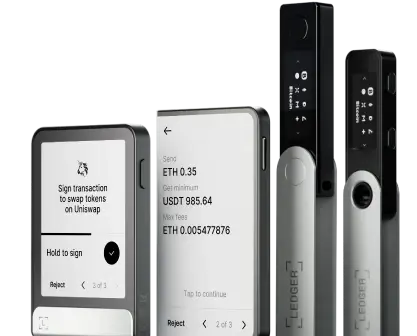Thought leadership | 06/02/2020
Checklist to keep your family crypto safe

Bitcoin, the first cryptocurrency ever, was created with the intent to give the power back to people. The decentralized payment system is not controlled by an authoritarian central party, but rather has been made fully transparent to all users. Today, there are more than 1,000 different cryptocurrencies and projects based on blockchain; this sector is still growing. Interest in Bitcoin and other cryptocurrencies has increased tremendously over the past couple of years. While buying, storing, or spending cryptos may seem shrouded in mystery, it’s not as hard as it seems. Below, everything you need to know to invest in and keep your crypto safe is explained in a detailed guide.
Knowing the difference between a private and public key
Securing your cryptocurrency funds is not complicated but requires a bit of knowledge about how crypto-wallets work and how they are used to store your assets. Every cryptocurrency wallet comes with a public key linked to a private key. The main purpose of a private key is to decrypt bits of information; in a way, it is the ‘password’ that allows someone to login to a wallet and spend their crypto-assets.
Usually, private keys are encoded inside a ‘seed phrase’ that users receive in a simple written format. Private keys, as the name implies, are meant to be kept entirely private and secure. However, you can freely share your public keys with anyone. While the private keys allow you to access and use the crypto you already have stored, public keys are how others can send you crypto. This public key can be thought of like an ‘email address’, which you give to someone else and they can ‘send’ messages (or in this case crypto) to you. Each cryptocurrency has a different type of addresses (public keys), though, so you cannot use them interchangeably.
It’s also important to understand that cryptocurrencies are not exactly stored locally on your phone or computer. They are stored on the blockchain, and can be accessed on any connected node, provided that you have the correct private key. This is what sets blockchain technology and cryptocurrencies apart from traditional money.
Your wallet gives you access to your funds and allows you to manage your private keys. Wallets do not actually store your assets, but rather the public and private keys that give you access to your assets. While keeping your private key private is important, it is highly recommended to create a backup and store it somewhere else, because without them, you won’t be able to access your funds. All of this might sound a bit too technical, and it is, but thankfully there are a few alternatives to store your funds more easily
Buying Cryptocurrencies Safely
There are hundreds of exchanges that allow you to easily buy cryptocurrencies using your credit card or bank account. It’s recommended to do your own research before using any particular exchange, although the exchanges with the highest number of users tend to be the safest.
Each exchange has different fees and supports different payment methods. However, for all, you generally need to register for an account first and pass a simple KYC verification, which usually involves sending over your passport and a selfie of yourself. If you are looking to buy a specific cryptocurrency, the first step is to find out where it’s listed and whether the exchanges allow you to buy cryptos with fiat.
Transferring crypto funds to different exchanges is fairly simple, but usually has small network fees, or even exchange fees. Note that not all exchanges support the same number of cryptocurrencies.
Similarly, sending funds to your personal wallet is just as easy. However, most exchanges have a daily limit on how much money you are allowed to withdraw, so keep that in mind.
Additionally, cryptocurrencies, unlike most other investments, can be extremely volatile and can lead to substantial losses in a fairly short period of time. Similarly to any investment, it’s crucial to invest only what you can afford to lose. While this market follows the trend of high-risk, high-reward, these are never guarantees. So, while there are plenty of cryptocurrencies with a lot of potential, they are still highly susceptible to short-term volatility.
A rule of thumb that people often use is that you shouldn’t put more than 1-2% of your total net worth into crypto, unless you really understand the risks and can accept wild swings of sometimes 30% a day.
The Difference Between Hot and Cold Wallets
Cryptocurrency experts usually define “hot” wallets as any wallet that is connected to the Internet. There are plenty of advantages to this type of wallet, mainly how easy it is to use and set up. It is an excellent product for newcomers, and usually can support more than one type of cryptocurrency; however, and very importantly, they are also far more susceptible to hacks and other kinds of attacks, including technical vulnerabilities. The other major downside to hot wallets is the fact that your assets are often controlled by a third party while in that wallet.
“Cold” wallets, on the other hand, refer to any wallet that is not connected to the Internet in any way. The most common type of cold wallet is a hardware wallet, a special kind of wallet that stores your private keys in a secure device. Because these wallets are not connected to the internet, the information cannot be transferred out without linking it to a connected device. You also have full ownership of your assets on a hardware wallet.
A hardware wallet is usually compact and small and easy to carry around. And, while they are important for the increased security, you may want access to both “hot” and “cold” wallets. At Ledger our hardware wallets the Ledger Nano X and Ledger Nano S are the best in class solutions for any crypto holder. Combined with Ledger Live, our online portal, they offer unbeaten security and full control for your crypto assets. Allowing you to take back control of your wealth and circumvent third party control.
Ultimately, crypto storage is a personal choice, although many people opt for both, using hot wallets to move funds through, and cold wallets to keep the bulk of their assets secure. Choosing your wallet will depend on how you plan to use your cryptos; if you are looking to trade cryptocurrency assets actively, you need to deposit them on an exchange hosted hot wallet. The security of your funds will depend entirely on that specific exchange. However, if you merely wish to keep your crypto safe, without actively trading, a cold, hardware wallet is far more secure. As you can see both types have their own advantages and disadvantages.
How To Avoid Common Crypto Scams
The cryptocurrency industry is still relatively new and unfortunately, scams are increasing. Blockchain technology allows people to have full control over their money, but there are some disadvantages. For instance, since there are no central authorities that control your funds, payments cannot be reversed – a feature that makes scams and fraud far easier to pull off.
Throughout the years, there have been thousands of different scams, from very complex operations to extremely simple ones. One of the most popular scams is still currently lurking on Twitter. Although fairly simple to detect, a lot of people, especially newcomers, still fall for this common scam. The fraudsters usually impersonate an important Twitter user, like Elon Musk or Vitalik Buterin (creator of Ethereum), and offer a ‘giveaway’ that requires users to first send a small amount of crypto to their wallet.
A few scammers have been able to even get verified Twitter accounts under Elon Musk’s name or other recognizable figures – a crucial security breach on Twitter’s side. Either way, the easiest way to detect this scam is to check whether the ‘giveaway’ requires you to send money first.
More Complex Scams
Not every scam attempt is that obvious, and most cryptocurrency users do not have the necessary technical knowledge to detect them. There are a few basic steps that should be taken with any transaction that can help secure your assets, though. One of the most crucial steps when sending crypto to someone else, is to always double-check the receiver address. This is important because, not only could you have mistyped the address, but an attacker could have hacked into your computer and changed the address after you copied and pasted it. When dealing with non-returnable transactions, it is vital to ensure that they are correct the first time.
If you are worried about your computer being compromised, there are a few methods to add extra layers of security. 2FA (2 Factor Authentication) is the most common and will help you keep your crypto safe, even if your computer is attacked. A 2FA system is relatively simple, and relies on another device, usually your mobile phone, to confirm your login or transaction. This system means that an attacker would need to have access to your computer and mobile phone simultaneously to launch a successful attack. This is obviously not impossible, but highly unlikely, and is a fairly simple step to increase your security.
How to Securely Browse The Internet
To avoid getting phished, there are a few security precautions you can take while browsing websites. Always double-check the websites that request that you share sensitive information. Similarly, there are fake apps on both the App Store and Google Play store.
Scamming emails are also quite common. Although many are automatically sent to the ‘spam folder,’ some can bypass this filter and end up in your inbox. Avoid clicking links unless you know the email address.
You can also find plenty of Ponzi schemes online. They are easy to detect, as they often offer huge returns with very little or no risk at all. Try to avoid investing large sums of money in new projects that seem to promise a little bit too much. Remember, if it’s too good to be true, it’s probably not true.
Conclusion
Cryptocurrencies are very interesting to explore, but can be hard to manage if you are just starting. It’s important to do your own research before investing in anything. The technology behind Blockchain is complex but you don’t necessarily need to understand it fully. Yes, crypto allow you to have control over your funds, but they also come with a few risks.
If you understand the risks and learn how to control them, you definitely stand to benefit a lot from the cryptocurrency industry in the long-term. Keeping your crypto safe is easy if you follow our detailed guide. And, finally, the golden rule of crypto: if it’s not your private key, they are not your coins.





























